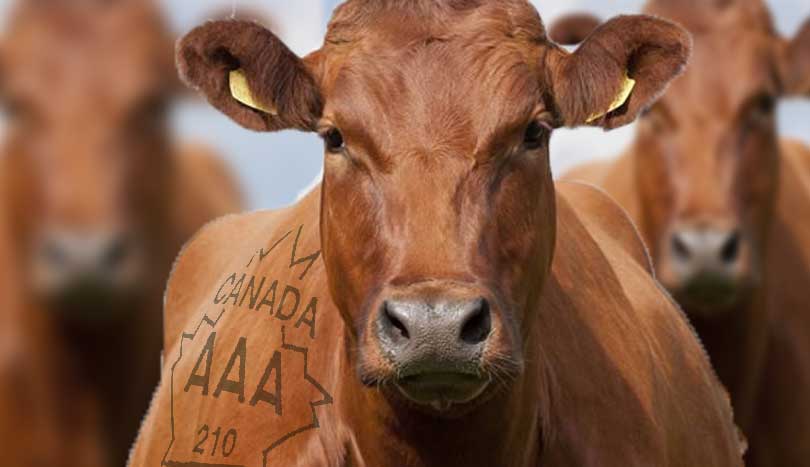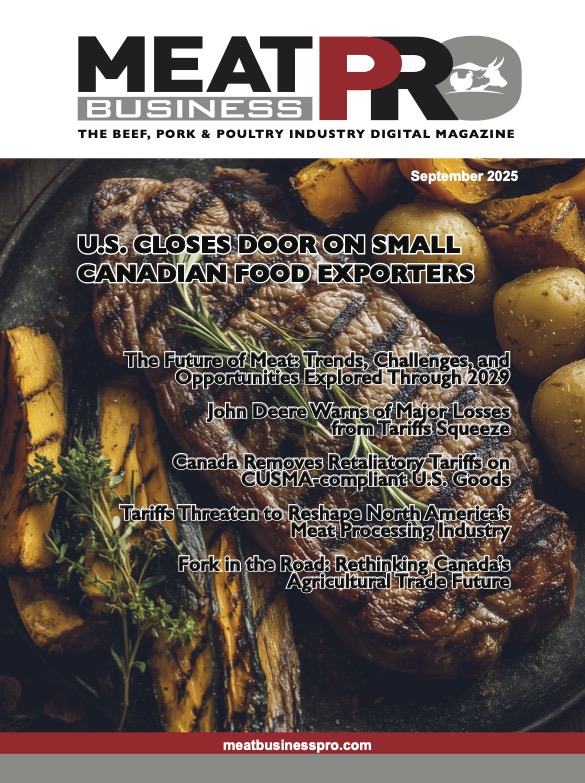Beef Production in Canada A Top Priority Amid Pandemic

Albertans left staring at empty shelves in grocery stores throughout the province should rest assured that beef production in the province is running at 100 per cent capacity at some facilities
by Michael Franklin – CTV News
As the COVID-19 pandemic continues in Canada and around the world, many people are stocking up on whatever necessities they can to ensure they can weather a 14-day isolation if needed.
One of the hardest-hit areas in grocery stores, particularly in Alberta, has been the meat section where everything but a few packages of products have been sold out.
“Ensuring Canadians have continued access to high-quality and nutritious beef products is a top priority”
JBS Canada, the company that runs the beef production facility in Brooks, Alta., says that plant is running at “full capacity” to meet the food needs of Canadians.
“As a food company, we recognize and embrace the important role we play in making sure people have access to safe, quality food as we collectively face the coronavirus (COVID-19) challenge,” the company said in an email to CTV News. “We take this responsibility seriously.”
Meanwhile, the Canadian Cattlemen’s Association (CCA) says it is working with the federal government to make sure beef production is maintained in Canada.
“Ensuring Canadians have continued access to high-quality and nutritious beef products is a top priority in these discussions,” wrote CCA president Bob Lowe in a statement Wednesday. “There are no fundamental changes to the export and import of food and livestock related to the COVID-19 outbreak.”
The CCA also says all beef producers should follow all of the policies set out by the federal and provincial governments.
Measures at Brooks production plant
JBS Canada says it is also stepping up efforts to protect workers from being infected by the illness as well as other benefits.
“We have implemented several measures, including travel and visitor restrictions, enhanced sanitation efforts, and heightened heath protocols and worker benefits to protect the health and well-being of our team members.”
Some of those protocols include workers washing their hands regularly and all surfaces being disinfected properly on a regular basis.
No reports of COVID-19 in livestock
The CCA adds there have been no reports of cattle becoming infected with the coronavirus and there is no evidence to support such a possibility.
“Supporting the continuation of food production in Canada, preparing for and limiting the impact of COVID-19 is the focus of our work. We all need to work together to reduce the transmission of COVID-19 and limit the impact on our communities and industry,” Lowe said.
JBS is also extending sympathy to those affected by COVID-19 and commends the efforts of medical professionals who are working to contain the illness.
“We also thank everyone who is helping to keep food on tables, including producers, growers, retailers, government inspectors, transporters and the entire food supply chain.”
Our September 2025 Issue
In our September 2025 issue, Beef Advocacy Canada relaunches new platform, U.S. shuts the door on small exporters, The future of meat, John Deere tariff warning, Shrugging off high beef prices, Geopolitics and Bird Flu, The reshaped meat processing industry, Rethinking Ag trade, and much more!











